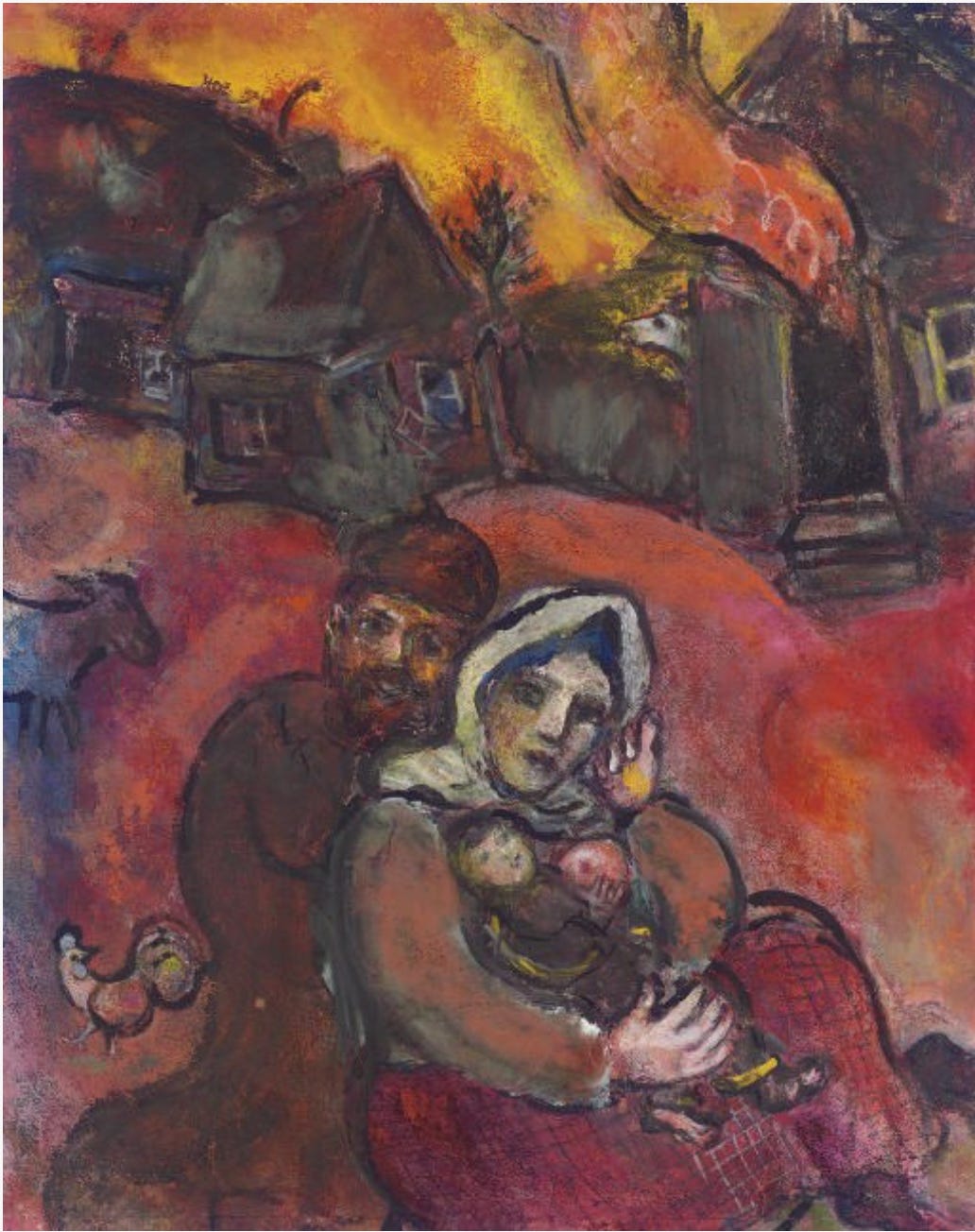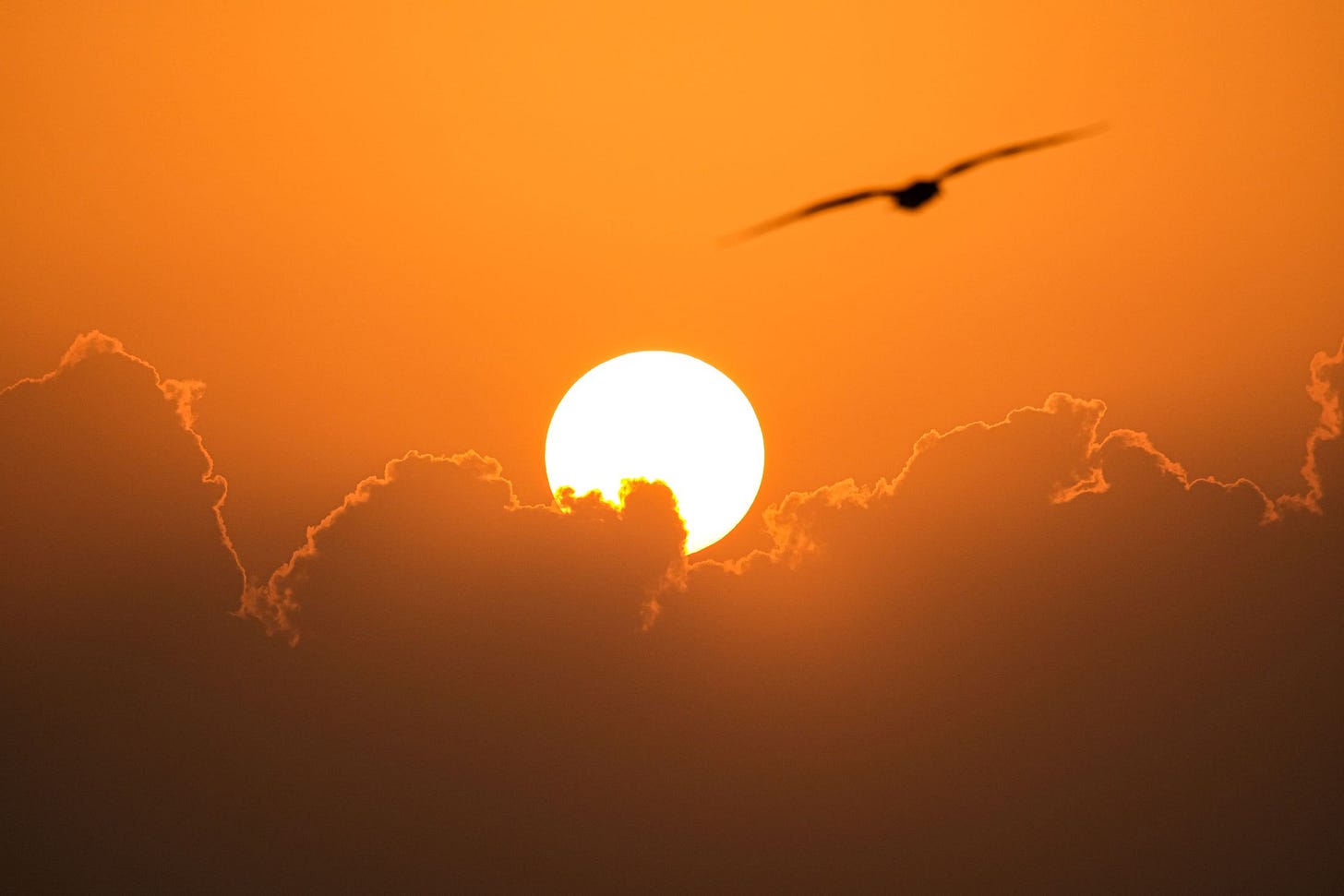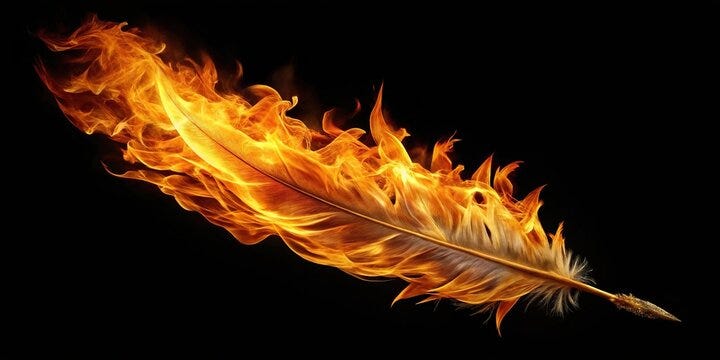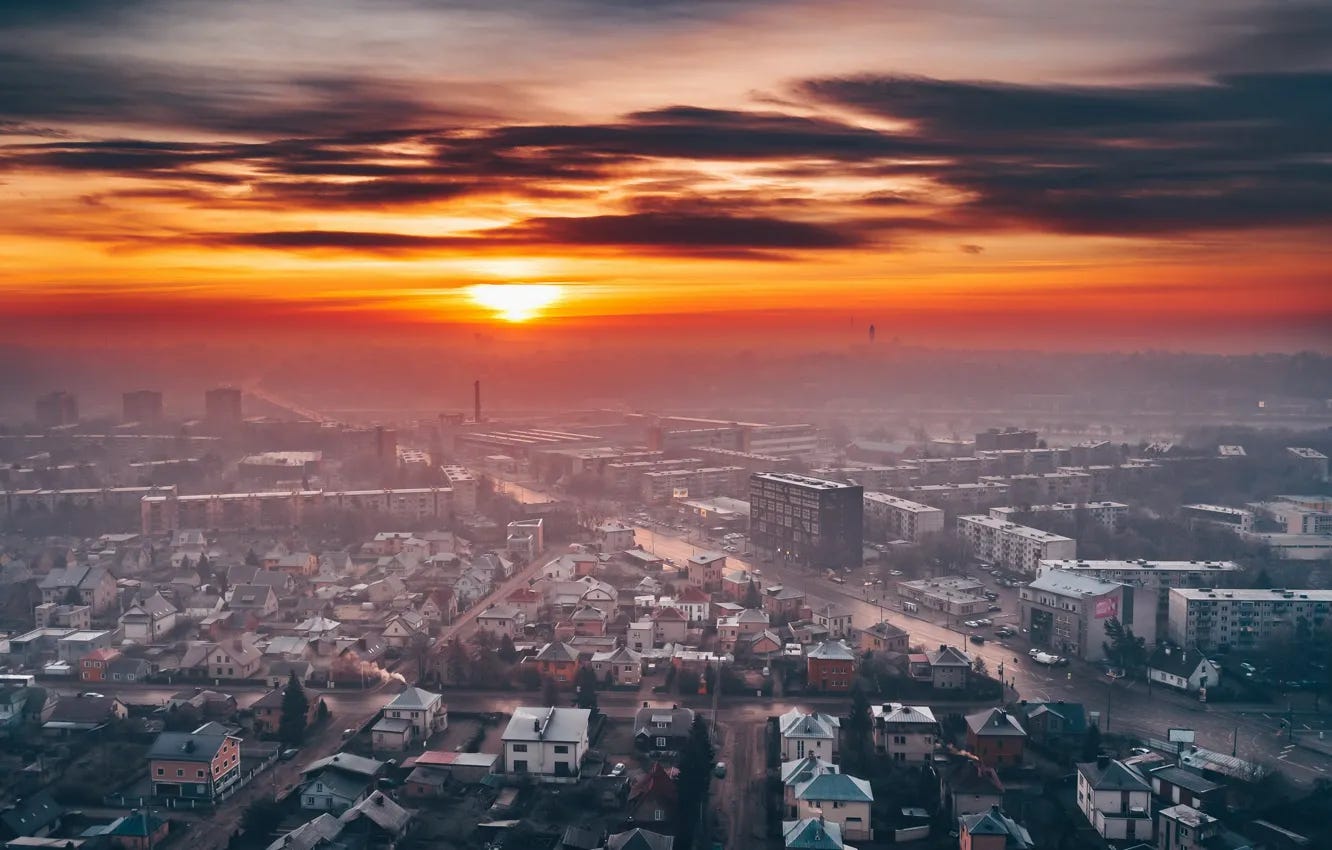On this the eve of Lag B’Omer, the holiday of fire on our Jewish calendar, we at Judith offer you an entire folio of poems that deal with the heat, the flame, the many passions of fire.
Lag B’Omer, as anyone who has lived in Israel knows, is that holiday when your eight-year-old comes into the kitchen, puts some potatoes in a bag and informs you that they will be out all night. “See you tomorrow, Mom!” I’m not sure it will be legal this year, but in the past its a holiday when bonfires burn across the country as they did back in the days of Rabbi Akiva (Akiva ben Joseph--c. 50–135 CE) when signal fires spread the word that the terrible pandemic amongst his students in Yavne was finally over. By then half of his students had died.
Recently in Israel wildfires burned out of control. An entire beautiful park between Modiin and Beit Shemesh, Park Canada (as well as other areas in the vicinity of Jerusalem) was utterly destroyed. We’ve had an unusually dry winter, and strange weather patterns including a year’s worth of rain falling in one day in the Negev, causing flooding through the desert all the way down to Eilat and on to Petra in Jordan.
And then there is the fire of missiles that have rained on us. The explosions in the sky whose sound enters into our centers with fear. Not to mention the bombs and bullets that have rained down from Israel on to the unprotected population in Gaza. Fire contained and fire that is out of control. Yet still, what would we do without sunshine? The glow of a sunset? The molten center of the earth keeping the trees, the wildlife and us alive.
Sometimes fire consumes. Sometimes fire warms. Candlelight passes blessing to anyone who faces its radiance. Then there is that story, Moses standing before a bush aflame and not consumed. Fire as warning. The siren. The gift.
Please read through this beautiful folio of poems that touch on the magic dichotomies of fire. Wishing you all a safe and happy Lag B’Omer and a beautiful shabbat.
The Flames of Chagall When you think of Chagall, you probably think of lovers floating, their bodies curled into each other like commas, Chagall and his wife flying over Vitebsk like a pair of mated geese migrating home, fiddlers with green faces playing music on rooftops. But in so many of his paintings, fires burn, bodies fall. In The Burning House, a woman contorts in pain, one arm stretched over her head, a man escapes, his belongings in a white bucket, another man falls into the flames, his peddler cart and frightened horse veering off the edge. The sky in Ukranian Family is aflame, orange and yellow, the ground a river of blood. A mother holds her two babies in her arms, shielding them from the fire, a baby’s round head rests on each breast, two ripe apples. She and her husband look at us, imploring, begging for help. A lone goat and a lone rooster putter on the ground, but this family huddles together for safety. How different we are from animals-- only we have the evil in our hearts to light another’s home on fire, and only we have the love in our hearts to seek safety in the arms of our beloveds, like the families burned together on October 7, bodies still embracing, holding on to each other even in death. Small flames frame the White Crucifixion, burn on either side of Christ as he lays on the cross, a tallis covering his middle. On the left, flames lick through the windows of a wooden shack, a man falls out of his home or lies dead on the ground. On the right, flames erupt from a shtetl shul, one thick tongue of flame emanating from the ark, as a man wearing a Nazi wristband tries to ensure Torahs burn. While an escaping, newly-exiled Jew hugs a Torah safe to his body, reminding me of a photo I saw last week of Jerusalem’s fires, of a Druze firefighter, one arm clutching a Torah, risking his life to save a precious scroll he himself does not believe in. On the bottom of the painting, in the center, glow lit candles of the menorah, sparks that survive, sparks that will outlast these attempts to destroy. When you walk through fire, you shall not be scorched; Through flame, it shall not burn you. —by Laura Hodes
Instructions For My Daughter On How To Pray
Strike a match, cup your hand
round the flame while it gathers
courage for the darkness.
Light the candles. Cover your eyes.
Recite the ancient words.
Bury your hands in the dirt,
let it mark the lines of your skin;
plant the tree, add life to the earth
and the earth to my grave. Grieve
for as long as you need.
I'm sorry I leave the world
like this. I'm sorry I did
only what I could. Light the candles
even though I will not see them.
Remember:
you are not the match, the flame,
the dirt. The prayer is not
the candles, the song, the words.
You are the hands.
The prayer is you.
—by Rebecca Bat-Ze'evKabbalah for Tammuz: A Return to Worldly Consciousness
A backwards permutation
the season is summer
light emitted from my eyes
returns as fire to my eyes
sees through physical reality
removing the outer shell
revealing inner fruit
inner pulsation
essential unity
touching yet not touching
my eyes are doves reflecting the light
of continuous re-creation
—by Janet R. KirchheimerOrange Things
My favorite cotton
dress from Lands End, matching
shoes with their hot pink heels
straight from DSW, apricot jam,
autumn leaves and basketballs
and Irish setters, koi fish
in a pond. Safety
vests, traffic cones, foxes and fire.
Pumpkins, sweet potatoes, carrots, and Gold-
fish crackers. Balloons, T-shirts,
Instagram squares. And hair. Kfir and Ariel’s hair.
The morning of the Bibas’ funeral,
the morning the boys and their mother
were buried in the same box—I woke
before dawn, sat on my porch,
watching the sky turn. Even the sunrise
burning orange.
—by Diane GottliebMy Father in Heart Failure
He goes out to the porch and feeds his jays.
We knew this day would come. It’s still a shock.
His heart’s been failing for a couple of days.
He goes out to the porch and feeds his jays,
to feel the sun, its sudden warmth, its rays.
He puts in feed, thistle, and turns the lock.
He goes out to the porch and feeds his jays.
We knew this day would come. It’s still a shock.
—by Janet R. KirchheimerI Meet Mercy in a Dream
Feather tie to windpole wish for wind wish for find or fin or foolish wish
a feather is a wish and wind takes it—
so says the witch who would like to be left alone who would like
to wish for jewels and have them come to her.
If a woman wishes for too much if she finds too much and keeps it for herself
the others wish her not well with their wish-thoughts.
I send my witch a feather. It is not a jewel, I say, apology.
She twirls it in her fingers tests the wind with it.
It is not, she says to me and lets the fool wind take it,
lights a flame, lets the wind take that,
until everything is flame, feather heat, red drop jewels burning—
—by Meg LeonardIsrael, Highway 3
I lift my eyes towards the hills
Dismal flakes of ash
Grey and brittle
Blind me
Floaters in the world's eye
Hovering
Dazed
With nowhere to wander
But within the confines of an air
That is thick
And hazy
And bewildering.
I lift my eyes towards the hills
And higher still
The sun
Orange
Passionate
Wild rays thrashing
Through clotted air
Assault on a pillar of dust
Too stubborn to concede
It's blazing beams reaching out
In desperation
To me.
I lift my arms
And reach towards them
Hoist myself and rise
On a ray of light
It heaves me
Through a cloudy mire
I gasp and struggle
To breath in destruction
The remnants of Nature's fruits
I flounder
Terrified
But my hands' grasp
Knows no surrender
I lift my eyes
To the passion of life
Towering the wretchedness
Of devastation and torment
Above - a bright light
And down below…
Behold!
A phoenix
—by Hila BarLitva Eating Memory
Kinder, I was her child until childhood grew teeth
she was mine Bubbe until memory learned hunger
my little town swallows itself along the river
while moss grows backwards into time
the poor little town breeds smaller towns
my poor little dream divides into poorer dreams
will I ever find what the river hasn't eaten?
oy oy oy echoes lay eggs in empty streets
my childhood speaks in lost languages
my Mamen burns where fire burns memory
remember dear, the streets are learning here
lucky is you (once again lucky is you)
I will go along all streets that multiply themselves
shouting "I lost Lithuania" into doorways that forget
we spin dreams until they tangle into wire
shluf, sleep, little spring bird
sing my song about the golden land that rusts
oh enemy! you destroy even destruction
farewell Litva I will never return to returning
Yiddishe Meidele, Jewish girl growing sideways in time
my pants are too long with running from memory
my stripes are too wide with the weight of forgetting
they're kumen!!! and even terror learns to tremble
I won't sew your suit, but suits sew themselves now
no one wants to buy from me (I sell only absence)
have pity on me until pity splits into smoke
I lost my cigarettes in a country losing itself
my mother was killed by the killing of mothers
my sister was enslaved by the slavery of sisters
Mine Yiddeshe Mama fragments into genetic code
I miss you everyday (everyday missing grows moss)
in a little town that lives inside me dying
—by Tamara MCKilauea The smell of sulfur is strong, but not unpleasant to a sinner.” —Mark Twain about the summit of Kilauea, 1866 Walking the volcano's shoulders heat warms the soles of my feet through flip flops thin enough to be a second skin, the fire deep underground. The earth is busy remaking, constructing. Carrying a small vial of my parents' ashes, I spot steam escaping one of many vents. I return them to the mantle, the core, so close to the source of creation. It is a trial by fire, a trail of fire, a second cremation. In this pit there are no dancing demons, no sulfur I can smell. This is no burning hell, a construct my father, some would say a sinner, didn’t believe in. —by Betsy Mars
Lucifer Sweet-talks Sylvia Plath
You’re just like me. I know the ache
of holding back, trying to dim your flame,
so that one who had to reign supreme
felt safe. Our deference worked for awhile.
Did you question why you got so many
fevers? The brilliance inside you forcing its way out.
When you claimed your gift, he punished you,
but even in your banishment you blazed.
Now your words fill anthologies he’s absent from,
and soon he’ll be mere footnote, “husband of.”
I, too, am triumphing. As civilians
in the latest war zones send up
offerings and prayers to my rival,
it is obvious who wields the brighter light.
—by Alison StoneSummer Child
I am a summer child
born as heat rose from sidewalks and roads
shimmered in the air, a mirage
scalded the feet of those foolish enough to run barefoot
I am a summer child
too cold in winter, bundled in layers of sweaters
longing for bright sunlight
pale skin craving warmth and pinkness
I am a summer child
born of late nights and star-filled skies
thunderstorms that left stickiness behind
clothes clung with dampness to our skin
I am a summer child
of cool lakes and ocean breezes
the smell of coconut on my skin
flip flops and sand that gets everywhere
I am a summer child
fire runs through my veins
sunlight shines from my eyes
heat warms me from within
I am a summer child
even with my eyes closed
on the coldest days
deep in the night
I see the flames
my heart is warmed and lit from within
my soul's brightness lifts me
my love
my spirit
burning with the intensity of a wildfire but does not consume
until the day I am no more
and my soul returns to the stars
rejoining the fire that burns without end
—by Julie BrandonOld Flames 1. All my elementary years I loved fire. I liked the little fireworks that looked like dynamite sticks. I took one to school, put it in a blood- red plum to silence the sound, lit the fuse.... Rabbis never seen before came running as if they had been created from nothing but the sound itself. 2. The difference between a good life and a bad life is how well you walk through the fire, said Carl Jung. 3. Called a city, Scranton is almost one. A local arsonist captured this insecurity, never targeting tall buildings or the homes of the rich— only ramshackle tool sheds behind lower class houses, burning them up in hapless blazes. 4. Jung must have dreamt of Abraham thrown in the immense furnace by King Nimrod of Babylon. Abraham walked inside for three days without even a blister. Only the heavy rope that bound him burned away. 5. Scranton once had a heart of coal. Nothing can glow that bright now. 6. Nimrod was a trapper of men and animals. When he roasted a gazelle over the flames, did he see himself rising over everyone in the distortions of heat and ash? Did flames or stars tell him to worship idols and condemn those who did not? He must have known from how well he snared all living things that he would someday be king. 7. Luther Perkins, guitarist on Johnny Cash's Ring of Fire, burned away in a bed of rising flames, the last of his cigarette falling from his lips as he began to dream. 8. I adored the sulfur smell smoke bombs gave off in colored curls rising up after their fuses shot out little sparks like my own personal lightning. 9. Abraham touched the name of G-d that is higher than nature, so flames couldn’t touch him. 10. Somewhere above, an orchestra of fire plays, incinerating the edge of a galaxy, and a sun explodes to end some old solar system. A long hiss…. The worlds are gone— like that bronze-haired woman I lacked the nerve to approach that May night in the Bowery when I turned to order a double shot of bourbon. 11. King Nimrod's stargazers warned him of Abraham, and the constellations must have already moaned in defeat. Their lights dulled like the eyes of an old merchant with no way home. 12. Who by fire? we wonder every Rosh Hoshana in our prayers. In July of '41, it was the Jewish women and children of Riga sealed inside The Great Choral Shul. 13. Lester Perkins’ play on the Fender Esquire, the Jazzmaster, the Jaguar Guitar gave Johnny Cash his signature driving sound. The home that burned around Lester had been just built. He made it alive to the hospital but no further. 14. You might have never heard of that old massacre on Gogol Street; Listen to any of Riga’s old stone roads. You will hear a blaring silence— a refrain of shame. 15. My love of fire ended before high school. A body worthy of not burning held my soul in this world The way sheet music keeps its song. —by Baruch November
Buildings Going Up, Letters Coming Down
When I was a kid on 94th and Columbus
me and my buds used to watch the construction guys
beat the crap out of the earth between 93rd and 92nd.
There was a huge hole in Manhattan and a high
rise was going up into the light.
Pile drivers.
Back hoes.
Who knew about poetry back then?
The closest thing to a poem that wasn’t a poem
is that I stood at the chain link fence and thought
about the Apollo 11 rocket
that was headed towards the moon in a ball of flames
or had come back from the moon in a pocket of dust.
Could I go there with and that’s what I wanted
to be, an astronaut,
as those machines ripped up the earth and beat
pylons into the earth and moved the dirt.
That building went up fast, we grew up slow,
and maybe that is the poem because language
never makes it to outer space
unless you believe what the Jewish mystics believe—
that the letters of the Hebrew alphabet--when spoken--
rise up liksome fire, like smoke,
into the atmosphere and vanish only to be
reborn again as themselves
the next time someone says,
Shalom.
—by Matthew Lippman(From) Take Our Burnt Offerings, Oh God Dear God, remember Daniel, Who walked out of the furnace alive. Dear God, remember Moses, Who saw the burning bush and survived. Dear God, remember Israel, Who stood at the foot of the mountain while it was aflame. Dear God remember us, Who beg in your mercy to be saved. Take our burnt offerings, oh God, Our heated fury at our loss, Our searing terror and scorching devastation, Our smoldering fear and charred possessions, Our fevered anguish and smoking grief, Our fuming remorse and explosive laments. Take our burnt offerings, oh God, And fan in us a scintilla of gratitude, for family and life, Take our burnt offerings, oh God, And kindle in us instead an ember of love. Take this burnt offering, oh God, And spark in us the strength and the will to rebuild. Then we shall feast before the Lord our God, happy. We shall feast before God and be happy. —by Rabbi Zoe Klein Miles




















Thanks!
Gorgeous work. Thanks for these.